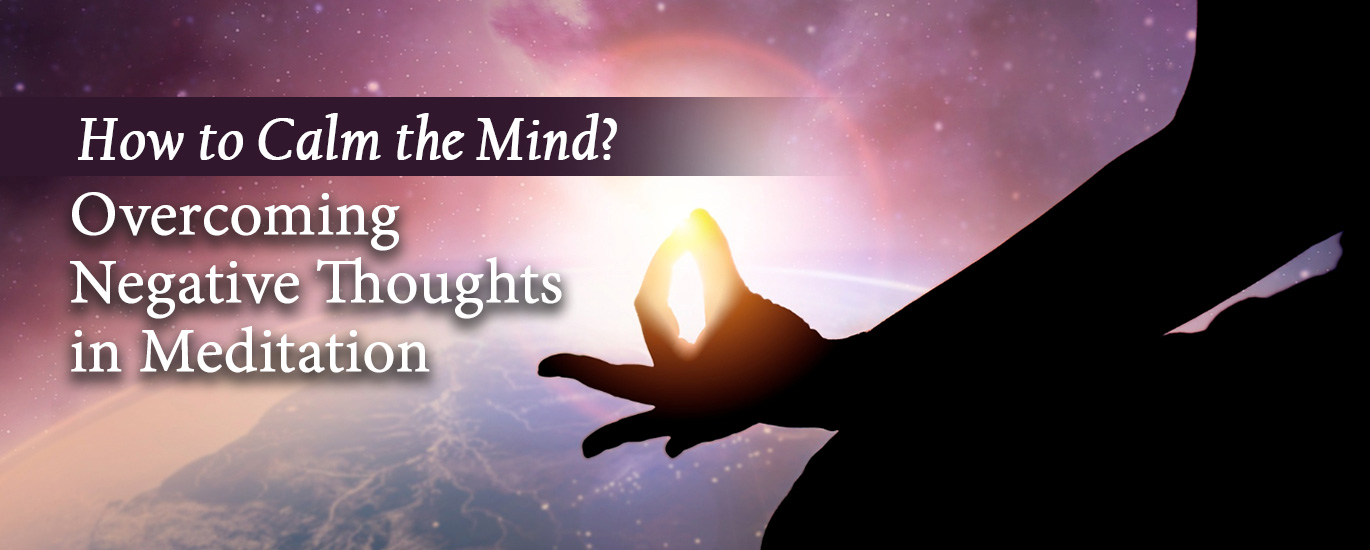Introduction
Does it feel as though your mind is filled with any number of thoughts just swirling around, and will not settle? Thoughts of worry, past memories, or even just random thoughts of restlessness. In this fast, stressful life that we live in, learning how to calm the mind is one of the most powerful skills we can teach ourselves.
Calming the mind does not mean no thoughts. Calming the mind means creating space between yourself and the thought, so it does not take control of your emotions and behaviour. Meditation, and especially calm mindfulness meditation, is a gentle and natural way to learn to do this.
We will discover ways to deal with negative thinking, how to understand negative thinking and how meditation can help you achieve clarity and peace in your mind.
What Does It Mean to Calm the Mind?
A calm mind isn’t a mind with no thoughts. A calm mind is a mind that knows how to handle thoughts in a balanced way. A calm mind allows you to be present and aware, respond wisely to challenges, and feel in control of your emotions.
The benefits of calm mind:
- You’re less likely to ruminate or feel anxious
- You can focus better and make better decisions
- You feel more stable and peaceful emotionally
- Your sleep is deeper and more restorative
- You connect more easily with others and with yourself
Why Do Negative Thoughts Appear When Meditating?
A lot of people find it frustrating that when they sit down to meditate, they just think more. This is normal. Meditation brings awareness to what is already happening in your mind. Negative thoughts aren’t a result of meditating, they’re just noticed more clearly while meditating.
Reasons negative thoughts may come up:
- The mind isn’t used to being quiet and still
- Old anxieties or feelings might come up now that there are no distractions
- You are now noticing those thoughts that you ignore when going about your day
- Being fearful of silence and discomfort may push these thoughts more to the surface.
Understanding this helps you stay calm and continue your practice without judging yourself.
What is Calm Mindfulness Meditation?
Calm mindfulness meditation is a type of meditation in which you sit quietly and allow yourself to notice your thoughts, emotions, and sensations and refrain from changing them. You notice them, let them be, and yield your attention back to your breath or body.
It teaches you:
- How to be present
- How to not react to every thought
- How to observe negative thoughts without having to believe them
- How to also create Meditation for Inner Peace
This practice is simple, but it is powerful. It doesn’t require any equipment or special skills. It only needs you and your breath and commitment to slow down.
How Meditation Helps with Negative Thoughts
Mental Clarity through Meditation allows you to create a new relationship to your thoughts. Instead of becoming stuck in negative thought cycles, you learn to notice thoughts as they come and go. This is exceptionally liberating when your mind is heavy or restless.
Here are some practical ways that meditation helps:
The major reason we keep getting negative thoughts over and over again is that we react with fear or negative feelings. Rather, if we stop reacting and merely observe the thoughts as we would a movie, it will drain them of their power.
With time, these thoughts will go away if we continue to do this. This is what meditation teaches us: How to watch thoughts come like clouds but not react to them, and consequently, let them go.
(As explained by Guru Ji Amritanand Natha Saraswati of Devipuram.)
1. It creates mental clarity
When you observe your thoughts without reacting to them, you begin to know your thoughts better. Most thoughts are transient. They lose their power when you stop feeding them with worry or fear.
2. It increases self-compassion
Self-Compassion Meditation helps you to show yourself kindness. When you have a negative thought, you will use patience instead of criticism.
3. It assists with emotional healing
Some negative thoughts come from old hurt or trauma. Meditation invites those emotions to come up very gently so that you may feel them and allow them to be released without fear.
Easy Ways to Calm Your Mind
You don’t have to be an expert to calm your mind. Anyone can do these easy practices!
1. Name your thoughts
When you have a thought, just pay attention to it; name it silently. I.e., “worry,” “planning,” “fear.” By giving it a name, you disconnect from it being part of you, and instead you view it as a thought.
2. Attend to your breath
Breathe in slowly and deeply. Focus all of your attention on the air going in and out your nose. This will anchor you to the present and calm your mind.
3. Use loving-kindness phrases
Think of something soft to think, such as; “May I be calm,” “May I feel safe,” “May I be at peace.” These soft thoughts help you to feel supported, and loved from the inside out.
4. Picture a peaceful place
Close your eyes and picture a safe, beautiful space (like a garden, mountain, or quiet room), and imagine yourself sitting there in a peaceful way. You can feel your mind feeling comforted and safe.
Scientific Evidence Supporting Meditation
There is real science behind the power of meditation. This is not just a spiritual effort; there is research behind it. Harvard conducted a study that found that after only 8 weeks of mindfulness meditation, the participants increased gray matter volume in the brain regions for learning, memory and Emotional Healing Meditation regulation.
- In a study published in JAMA Internal Medicine, researchers reported that mindfulness meditation studies produced decreased anxiety, for an average of about 58%.
- Regular meditation decreases cortisol (the main stress hormone in your body) levels.
- Meditation promotes better sleep.
- Meditation promotes emotional regulation and balance.
- Meditation also helps improve attention span and levels of attention.
A Daily Habit to Keep the Mind Calm
Cultivating small habits every day will help you stay calm and relaxed when times get difficult.
Morning Calm:
Start your day with two minutes (or three, four or five) of calm breathing (or sitting in silence). This allows you to begin the day free of unnecessary thinking and clear and peaceful.
Afternoon Calm:
Take a pause during your day. Close your eyes and observe your breathing for two full minutes. Allow yourself to become aware of your breath without trying to manipulate it. Notice the rise and fall of your stomach and relax your shoulders. This allows your mind to take a break, even if it’s just for a moment.
Evening Calm:
At the end of the day, sit quietly and think about one good thing that happened today. You might even want to write it down. This simple habit will help you to end your day with gratitude and remain at peace.
What to Do If You are Distracted
It’s perfectly normal for the mind to wander when we are meditating. It is not about being perfectly focused but rather noticing that we lost focus, and after noticing, it’s about bringing our complete attention back to the breath.
If you find that you are distracted:
- Don’t judge or blame yourself
- Simply return your attention back to your breath
- Start again, without any pressure
Remember, that every time you return back to your breath, you are helping build mental strength. With practice, the mind becomes calmer and is more settled.
Final Verdict
Finding peace does not mean rejecting your thoughts. It simply means deciding to sit with them, experiencing them fully – acknowledging them, and allowing them to go. Finding a way to experience this, with love and kindness, is something that meditation can help you accomplish.
Peaceful minds are not something you are born with. It is an experience that you can create one breath at a time. Even if you only have a few minutes to practice each faint, you will start to feel it, and with the support of calm mindfulness meditation you can lessen the negative thinking, increase your emotional health, and become more peaceful!
FAQs
1. Is it possible to meditate if I have too many thoughts?
Yes, you do not have to stop your thoughts in order to meditate. All you need is to have the ability to notice them without any judgment.
2. How long should I meditate for each day?
Start with 5 to 10 minutes each day, as you get more comfortable; you can gradually increase the time.
3. What if I experience emotions while meditating?
It is totally ok to feel emotions; let them come and pass. You are healing by letting the emotions pass through you.
4. Do I need a teacher or app to meditate?
Not necessarily. Guided meditations (e.g. Idanim or Headspace) can assist you if you’re just starting out. You can meditate on some mantras like Om Namah Shivay and others.
5. Will meditation improve my sleep?
Yes! Meditation calms the mind, relaxes your body and makes it easier to fall asleep in the first place.
6. What if I don’t have time for longer meditations?
You can even spend 2-3 minutes doing meditation during the day. The important thing is consistency, not duration.






